#kanuni sultan Süleyman
Text
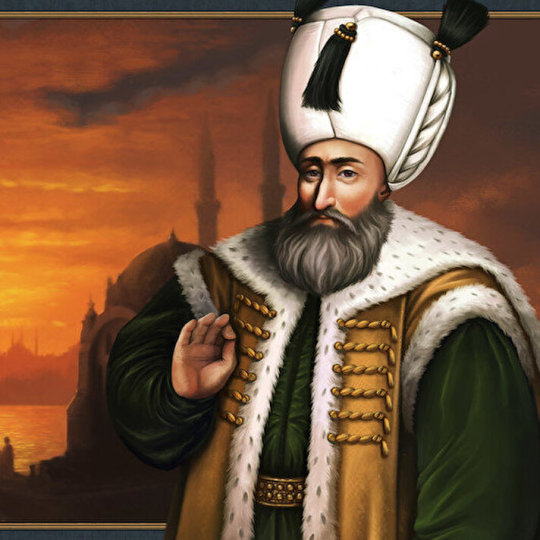
BİR DEVLET HANGİ HALDE ÇÖKER?
Kanuni Sultan Süleyman’ın aklına takılan ve onu yoran bir soru vardır.
"Çok güçlü bir duruma getirdiği Osmanlı Devleti’nin akıbetini hayâl eder, günün birinde Osmanoğulları da inişe geçer, çökmeye yüz tutar mı?" diye..
Bu sorunun cevabını almak için dönemin ünlü Türk alimi ve 'ağabey' dediği süt kardeşi Yahya Efendi’ye Sadrazamını gönderir.
Sadrazam gider, sorar ve döner.
Kanuni: "Ne dedi?" diye sorunca Sadrazam cevabı söyler: "Neme lazım dendiği zaman!"
“- Başka bir şey söylemedi mi?”
“- Hayır efendim. Bir tek cümle söyledi.”
Bu cevabı uzun bir süre düşünen Kanuni, sonunda ünlü alime mektup yazar, bunun ne anlama geldiğinin açıklanmasını ister:
“-Çeşitli yorumlar yapıyorum, ama doğrusu nedir, onu ancak siz söylersiniz..” der.
Ve ünlü alim Yahya Efendi de bir mektup yazıp, Kanuni’ye gönderir. Mektup şöyle:
“Bir devlette zulüm yayılırsa, haksızlık, adaletsizlik ve yolsuzluk sıradan bir hale gelirse, işitenler de “neme lazım” deyip uzaklaşırsa, sonra koyunları kurtlar değil de çobanlar yerse…
Bilenler bunu söylemeyip susarsa ve gizlerse...
Fakirlerin, muhtaçların, yoksulların, kimsesizlerin feryadı göklere çıkar, bunu da taşlardan başkası işitmezse...
İşte o zaman devletin sonu görünür.
Böyle durumlardan sonra devletin hazinesi boşalır. Halkın güven ve itimadı sarsılır. Asayişe itaat hissi kaybolur.
Halkın umutları yok olur, böylece devletin yıkılması mukadder ve kaçınılmaz hale gelir..”
KAYNAKÇA: Bu mektup, 500 sene önce yazılmış ve Topkapı Sarayı’nda sergilenmektedir.
🇹🇷☝️🇵🇸
#ottoman#Kanuni Sultan Süleyman#türkiye#doğa#travel photography#travel destinations#travel#manzara#view#natural#europe#africa
38 notes
·
View notes
Text
"Sûre-i Velleyl okurdum dün namâz-ı şâmda
Zülfün andım dilberin n’ettim ne kıldım bilmedim."
Muhibbî

#my post#postlarım#quotes#alıntı#alıntılar#edebiyat#divan edebiyatı#muhibbî#kanuni sultan süleyman#mihri müşfik#tumblr şiir#tumblr türkiye#aşk şiirleri#şiirimsi#aşk şiiri#şiirler#şiirsokakta#şiirheryerde
4 notes
·
View notes
Text
Aşk mıdır ki can-ü dil mülkünü yağma eğleyen
Aşk mıdır sinem içre gelip de can eyleyen.
10 notes
·
View notes
Text
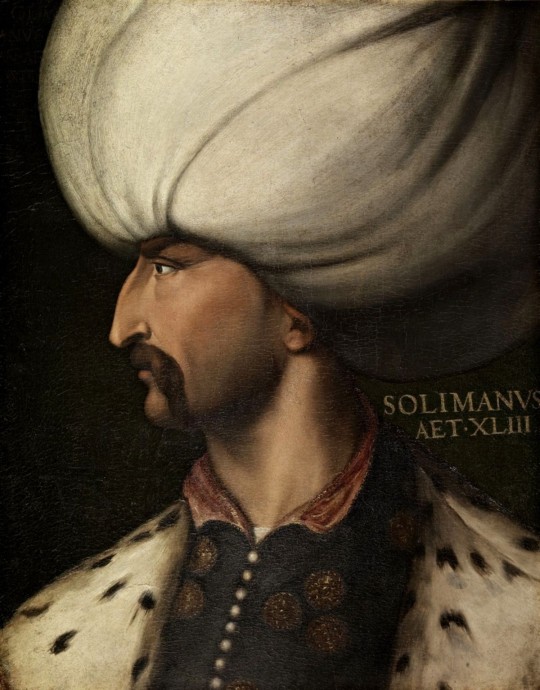
Doğu'nun imparatoru Sultan Süleyman şimdi 62 yaşında. Ortalamaya göre oldukça uzun boylu. Yüzünde onu sevdiren bir tatlılık var. Çok büyük bir şahsiyet olduğu yüzünden de belli oluyor. Yemek konusunda asla aşırıya kaçmıyor. Çok nadir olarak az miktarda et yiyor. Tercih ettiği et de pembe derisi olan erkek keçi eti. Şarap da içmiyor. Çok temiz, saf, sindirimi kolay su içiyor. Rahatsızlıklarına göre sık sık içtiği suyu değiştiriyor. İki rahatsızlığı olduğu söyleniyor: Bunlardan birincisi gut rahatsızlığı, diğeri de vücudunun ödeme çok yatkın olması. Bu yüzden de uzun süre hareketsiz kalmamaya dikkat ediyor. İstanbul'da olduğu zaman, sık sık, hatta neredeyse her gün gezinti gemilerine biniyor ve farklı yerlere gidiyor. Özellikle, Anadolu yakasındaki bahçelere gidip buralarda avlanarak vücut egzersizi yapıyor. Yine bu yüzden kışın konakladığı Edirne Sarayı'na gitmeyi de çok seviyor. Çünkü saray kapısından çıkar çıkmaz avlanabileceği, eğlenebileceği yerlerde buluyor kendisini.
Bizim için daha önemli konulara, yani sultanın karakterine gelirsek; çok adaletli biri olarak nam salmış. Bir konu hakkında tüm bilgilere sahipse hiç kimseye haksızlık yapmadığı söyleniyor. Kanunları ondan önce hükümdarlık yapmış olan herkesten daha iyi biliyor. Sözünü tutma konusuna büyük önem veriyor. Bundan daha büyük bir erdem de yok zaten. Çok uzun yıllardan beri imparatorluğu yönettiği için her konuyu çok iyi anlıyor ve her soruna en iyi şekilde çözüm buluyor. Doğası gereği savaştan çok barış isteyen bir hükümdar. Şimdi de, artık yaşlı ve dört büyük oğlu olduğundan, hayatının geri kalan kısmını barış içerisinde geçirmeyi umuyor."
Venedik Elçisi Bernardo Navagero, 1553.
16 notes
·
View notes
Text
On this day (10 October, 1470 CE {4/5 Rabi al Thani, 875 AH}), Ottoman Sultan-Caliph Selim I or Yavuz Sultan Selim Han was born in Amasya, modern-day Turkey.
Selim I was the son of Ottoman Sultan Bayezid II, most known for welcoming Andalusian Muslims & Jews fleeing from Spanish persecution into Ottoman domains; the grandson of Sultan Mehmed II or Fatih Sultan Mehmet Han, the opener/conqueror of Constantinople; as well as the father & predecessor of Sultan-Caliph Suleiman Kanuni (Kanuni Sultan Suleiman).
Sultan-Caliph Selim I was not only the 9th Ottoman Sultan/Padishah but the first ever Ottoman Caliph after he had brought much of the Middle East including Makkah, Madinah & Jerusalem into Ottoman control in 1516/1517 CE.
Sultan Selim's efforts laid the foundation for further expansion under his aforementioned son & successor and arguably the Ottoman's greatest Sultan & Caliph: Suleiman Kanuni/Suleiman I.
Pictured is Sultan Selim Han with his Grand Vizier (Sadrazam) Piri Mehmed Pasha.
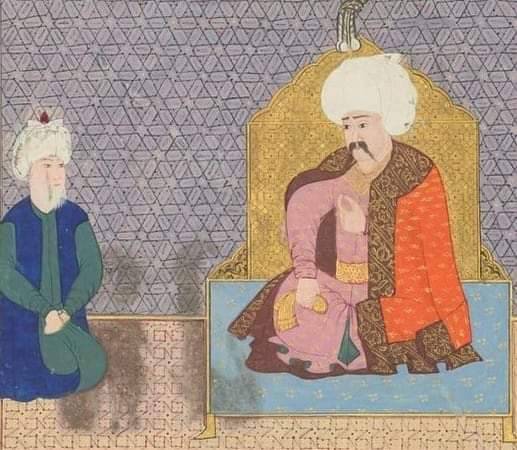
#islam#muslim#history#islamic history#ottoman#sultan muhammad al fatih#yavuz sultan selim#kanuni sultan süleyman
7 notes
·
View notes
Text
#enfeskanal 💖
Süleymâniye Câmii.. Beğenilerle, yorumlarla kanalıma destek olun. Kalıcı tâkip lütfen 🙏💖
https://youtu.be/PE_gao--HtU?feature=shared
youtube
#keşfet#trend#subscribe#takip edilesi bloglar#mosque#Süleymaniye camii#Gezi rotaları#İstanbul#Kanuni sultan süleyman#mimar sinan#mimari#secret#gizem#bilgi ambarı#tâkip ambarı👑#her telden#Youtube kanalıma abone ol#Enfes kanal#Youtube
0 notes
Text
Mimar Sinan’ın En Önemli 10+ Eseri
Mimar Sinan'ın hepimizi büyüleyen yapıları, sadece birer taş ve tuğla yığını değil, aynı zamanda estetik ve mühendislik harikalarıdır. Onun kaleme aldığı bu muhteşem eserler, zamanın yıpratıcı etkisine rağmen dimdik ayakta durmaktadır.
Haseki Hamamı Hürrem Sultan Kanuni Sultan Süleyman Mihrimah Sultan Camii Mimar Sinan Eserleri Mimar Sinan ve Eserleri Mimari Eserler Selimiye Camii Selimiye Camisi Süleymaniye Camii UNESCO
0 notes
Text
Kanuni Sultan Süleyman Kimdir Ve Eserleri Nelerdir

* **Doğum tarihi:** 6 Kasım 1494
* **Doğum yeri:** Trabzon
* **Ölüm tarihi:** 7 Eylül 1566
* **Ölüm yeri:** Zigetvar, Macaristan
* **Saltanat süresi:** 1520-1566
* **Hanedan:** Osmanlı Hanedanı
* **Babası:** I. Selim
* **Annesi:** Ayşe Hafsa Sultan
* **Eşi:** Hürrem Sultan
* **Çocukları:** Şehzade Mustafa, Şehzade Cihangir, Şehzade Selim, Şehzade Bayezid, Mihrimah Sultan, Raziye Sultan, Şah Sultan, Fatma Sultan bu, Osmanlı İmparatorluğu'nun onuncu padişahı ve 93 yıl süren saltanatı sırasında imparatorluğu en geniş sınırlarına ulaştıran hükümdardır. Süleyman, I. Selim ve Ayşe Hafsa Sultan'ın oğlu olarak 6 Kasım 1494'te Trabzon'da doğdu. Genç yaşta babasının yanında seferlere katıldı ve 1520 yılında babasının ölümünün ardından tahta çıktı. Süleyman, saltanatının ilk yıllarında Belgrad ve Rodos'u fethetti. 1526 yılında Macaristan'a karşı Mohaç Meydan Muharebesi'ni kazandı ve Macaristan'ın büyük bölümünü ele geçirdi. 1529 yılında Viyana'yı kuşattı ancak şehri ele geçiremedi. 1533 yılında Safevilerle yaptığı savaşta Tebriz'i ele geçirdi. 1534 yılında Irak'ı fethetti ve Bağdat'ı başkent yaptı. 1538 yılında Preveze Deniz Muharebesi'nde Haçlı donanmasını yendi. Süleyman, 1541 yılında Budin'i fethetti ve Macaristan'ı tamamen ele geçirdi. 1544 yılında Fransa ile ittifak kurarak İspanya'ya karşı savaştı ve Nice'i ele geçirdi. Süleyman, saltanatının son yıllarında iç sorunlarla uğraştı. 1553 yılında oğlu Şehzade Mustafa'yı isyan nedeniyle idam ettirdi. 1559 yılında yine oğlu Şehzade Bayezid'i isyan nedeniyle idam ettirdi. Süleyman, 7 Eylül 1566'da Zigetvar Kuşatması sırasında öldü. Cenazesi İstanbul'a getirildi ve Süleymaniye Camii'ne defnedildi. Süleyman, Kanuni lakabıyla anılır. Bu lakap kendisine, yaptığı fetihler ve çıkardığı kanunlar nedeniyle verilmiştir. Süleyman, Osmanlı İmparatorluğu'nun en büyük padişahlarından biri olarak kabul edilir.
#Kanuni Sultan Süleyman#Kanuni Sultan Süleyman Kimdir#Kanuni Sultan Süleyman han#Kanuni Sultan Süleyman Eserleri#Kanuni Sultan Süleyman neler yaptı#Kanuni Sultan Süleyman hangi fetihleri kazandı#Kanuni Sultan Süleyman hangi savaşları kazandı#Kanuni Sultan Süleyman hayatı
0 notes
Text
💙🥀🕊️
💙🥀🕊️
Kanuni Sultan Süleyman demiş ki;
"Ben ölünce bir elimi tabutumun dışına atın.
İnsanlar görsünler ki, padişah olan Kanuni bile bu dünyadan eli boş gitmiştir."
Öyle__!!

Muhteşem bir yer__ömrümün sonuna kadar burada kalabilirim__
Ama__yanımda__?!! 💙🥀🕊️


Akşamınız huzurla geçsin efendim💙🌹 Sevgiyle 💙

74 notes
·
View notes
Text




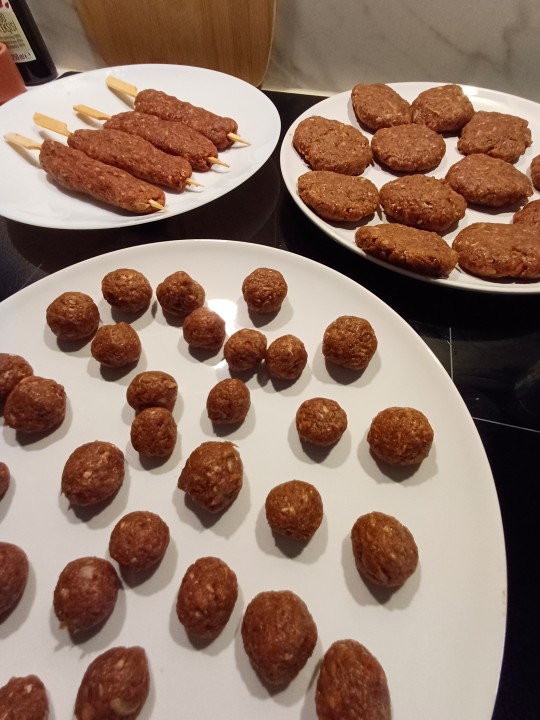



…
Hayatımızı düzene koyuyoruz vol bilmem kaç.
• Sanki Kanuni Sultan Süleyman Viyana’dan “Burayı aldık geliyoruz, önümüz boş, yarın ikindi vakti orada oluruz, yeniçeriler için akşam yemeğine nohut pişirüle” diyen bir mail göndermiş gibi hazırlık yapmışım. Kuru nohutun hacmi ıslatınca ayrı, pişirince ayrı artıyormuşsfkfkkfdl
• Ama biliyor musunuz gece vakti davlumbaz ışığı eşliğinde, haşlanan nohutun üstünde biriken köpükleri toplayıp dökmek insanı aşırı yetişkin hissettiren bir şeymiş. Gerçektenfkfkffk.
• Ve bugün bütüün bu hazırlıkları yaptım, bir ay boyunca çok rahat edeceğim, her şeyin böyle hazır olması çok iyi hissettiriyor bana 💃🏻
• Mutfak dolaplarını, dolap üstlerini, tezgahdaki her şeyi kaldırarak her yeri temizleyip sildim. Kışlıkları korkumdan kaldıramıyorum ama yarın da kalan kısımları detaylı temizlersem yaza hazırım demektir; gezmeye ve çalışmaya ve yazmaya.
• Çok yoruldum, hatta çay da demleniyor şu anda, yine de bisiklete çıkacağım çünkü her gün bisiklet sürmezsem yeniçeriler kanuni hünkarımıza isyan edebilir, boş dersler düşecekken hoca gelebilir, tam kar tatili ilanı yapılacakken vali fikrini değiştirebilirmiş.
41 notes
·
View notes
Text
Sağlık olsun !
"Halk içinde muteber bir nesne yok devlet gibi Olmaya devlet cihanda bir nefes sıhhat gibi"
Sağlığın önemini en iyi özetleyen söz,
Kanuni Sultan Süleyman'ın ünlü beyti.
.....
"There is no object as respected among the people as the state. There is no state in the world like a breath of health.
" The quote that best summarizes the importance of health is the famous couplet of Suleiman the Magnificent.
#sağlık#Kanuni Sultan Süleyman#padişah#hürrem sultan#türkiye#doğa#travel photography#travel destinations#travel#manzara#view#natural#europe#africa#Spotify
26 notes
·
View notes
Note
Hi! Me again.
First of all, I want to talk about the Grishas in the Ottoman Empire, of course there wouldn't be a definitive acceptance as you said. However, I think a distinction like the Muslim-non-Muslim distinction in the Ottoman Empire is possible. The Grishas are not completely equal, both in taxes and other issues, but they also have their own freedoms to a great extent. In this regard, we should also discuss which period of the Ottoman Empire we are witnessing. However, I think the most "Ottoman" period of the Ottoman Empire and the most interesting period to read was the period starting from Fatih Sultan Mehmet to Kanuni Sultan Süleyman, the 15th and 16th centuries. And as you said, these sultans wanted to conquer Ravka, because the Ottoman Empire had a "World State" policy.
While reading what you wrote about this, my mind went to Darkling and when I scrolled the page, I saw that you were talking about him :) As someone who has witnessed many eras, he would wonder how this state inspired by the Ottoman Empire could treat the Grishas like this. As you said, there would be a jealousy-imitation situation, but he is a man loyal to his state. If there was a war, he would undoubtedly be on Ravka's side. This raises the question in me, what if Darkling was a member of this state adapted from the Ottoman Empire? he is a very nationalist person, we Turks do not hesitate to give our lives for our flag and this is one of the reasons why I like Darkling. If we read that he was involved in this state and directed the complicated palace intrigues (because there are many events in the Ottoman Palace, such as harem fights and throne fights), I would be very affected by this. The story would also change completely ;)
On the other hand, it would be different to read a smart, ambitious and cunning Sultan in contrast to the stupidity of the King of Ravka. Also, the idea of Nikolai growing up with princes in the Ottoman Palace is a colorful page.
Finally, if I you are writing a story about this, this would be one of the things I will enjoy reading the most, please never hesitate to research and if you want my help, I am here :)
🖤
@yikilmisbirisi Thank you so much for sending this my way—seriously, I really appreciate it !!! I love diving into different perspectives and opinions <3
History has always fascinated me, and the Ottoman Empire is particularly intriguing for me, especially because my home country was once part of it :) I grew up watching shows like Muhteşem Yüzyıl (The Magnificent Century) and Muhteşem Yüzyıl Kösem. I know, I know—they’re more romanticized than accurate, but I still find them enjoyable. There’s also other Turkish historical dramas I love, like Diriliş: Ertuğrul, which dives into the 13th-century warrior Ertuğrul, and Vatanım Sensin (Wounded Love), set during the final years of the Ottoman Empire. There’s also Çalıkuşu (Lovebird) and Rise of Empires: Ottoman—though I haven’t finished watching the latter yet.
My grandmother, on the other hand, is all about modern Turkish dramas. Whenever I visit her, it’s become a bit of a tradition for us to watch them together. She gets so into them, it’s so funny 😭 !! Shows like Kaderimin Yazıldığı Gün (lol) are more her speed, with their contemporary settings. My family also frequently travels to Turkey for vacations, and I’ve grown to love the culture. In many ways, I find it similar to my own ;)
First of all, I want to talk about the Grishas in the Ottoman Empire, of course there wouldn't be a definitive acceptance as you said. However, I think a distinction like the Muslim-non-Muslim distinction in the Ottoman Empire is possible. The Grishas are not completely equal, both in taxes and other issues, but they also have their own freedoms to a great extent.
Yep, I initially thought along those lines too, but then I reconsidered. I started thinking—what if the Grisha share the same religion as the majority in the O.I.C ? (Ottoman-inspired country—I'm abbreviating because, honestly, writing it out every time is exhausting). This religion would be similar to Islam, though there would also be smaller religious groups, like a Ravkan religion of the saints, for example.
However, the real issue here is the power the Grisha possess. In the Ottoman Empire, the millet system primarily addressed religious minorities, but magic introduces a whole new dimension.
Magic is generally met with suspicion, so the Grisha would likely be placed within a millet-like system, not because of their religion, but because of their unique powers. They’d definitely experience more tolerance in the O.I.C. compared to neighboring countries, but they’d still be viewed with caution due to their abilities. That said, as time goes on, they would gradually integrate into society more fully, which would help ease some of that initial tension.
In this regard, we should also discuss which period of the Ottoman Empire we are witnessing. However, I think the most "Ottoman" period of the Ottoman Empire and the most interesting period to read was the period starting from Fatih Sultan Mehmet to Kanuni Sultan Süleyman, the 15th and 16th centuries. And as you said, these sultans wanted to conquer Ravka, because the Ottoman Empire had a "World State" policy.
Oh, absolutely !!! Mehmet the Conqueror really set the stage for the empire’s grandeur, and Suleyman—if I’m remembering right—had the longest reign of them all. I definitely envision this O.I.C. during their peak, when they were at the height of their power and influence.
What’s also fascinating is how advanced they were compared to other nations in the Grishaverse, both militarily and socially. For instance, the role of women in the royal courts is a perfect example. Kösem Sultan was incredibly powerful during the period known as the Reign of Women (Kadinlar Saltanati). While Hürrem Sultan was the first to wield political influence from behind the scenes, Kösem Sultan actually ruled for 12 years until her son, Murad IV, was old enough to take the throne. There’s so much to explore here—it’s a really rich and intriguing period.
While reading what you wrote about this, my mind went to Darkling and when I scrolled the page, I saw that you were talking about him :) As someone who has witnessed many eras, he would wonder how this state inspired by the Ottoman Empire could treat the Grishas like this.
Absolutely, he'd definitely have mixed feelings. On one hand, he’d admire how the O.I.C. treats Grisha with a certain level of respect, despite the general unease about their powers. Unlike the Fjerdans, who are openly hostile, the O.I.C. is more understanding, even if they don’t fully accept or support the Grisha. It’s not perfect, but at least the Grisha aren’t being hunted down at every turn. His admiration would likely be tempered by skepticism—whether it’s his survival instincts kicking in or just his natural paranoia, he’d probably be constantly questioning how genuine that respect really is.
As you said, there would be a jealousy-imitation situation, but he is a man loyal to his state. If there was a war, he would undoubtedly be on Ravka's side. This raises the question in me, what if Darkling was a member of this state adapted from the Ottoman Empire? he is a very nationalist person, we Turks do not hesitate to give our lives for our flag and this is one of the reasons why I like Darkling. If we read that he was involved in this state and directed the complicated palace intrigues (because there are many events in the Ottoman Palace, such as harem fights and throne fights), I would be very affected by this. The story would also change completely ;)
If the Darkling were a member of this Ottoman-inspired state, the possibilities for his character development are endless. One intriguing angle is how he would interact with the mysticism and spiritual practices that were woven into the fabric of the Ottoman court.
Another fascinating idea is how he might leverage the empire’s vast network of spies and informants— I mean we already saw it in the canon book but in a different setting like this, it would be even more interesting. The Ottoman Empire was renowned for its intelligence network, and the Darkling, with his strategic mind, could take this to a whole new level. This network wouldn’t just serve the empire—it would be an extension of his own will (of course), allowing him to pull strings behind the scenes in ways that even the most powerful viziers might not realize.
His involvement in the harem would also take on a unique dimension. The harem wasn’t just a place of palace intrigue; it was also a center of cultural and intellectual life. The Darkling could forge alliances with powerful women within the harem, perhaps even mentoring a young sultana or concubine with latent Grisha abilities, guiding her rise to power in exchange for her loyalty. This could lead to a complex, almost symbiotic relationship, where the Darkling’s influence in the court is both overt and subtle, as he plays the long game of empire-building.
Finally, the idea of the Darkling exploring uncharted territories for the empire is worth considering. The Ottoman Empire was known for its expansionist policies, and the Darkling, with his ambitions and unique abilities, could lead expeditions into unknown lands, seeking out ancient magical artifacts or lost knowledge that could further elevate his status and the empire’s power. This would not only satisfy his thirst for power but also align with the empire’s goal of becoming a dominant world power, making him a pivotal figure in a much grander and more intricate narrative.
On the other hand, it would be different to read a smart, ambitious and cunning Sultan in contrast to the stupidity of the King of Ravka. Also, the idea of Nikolai growing up with princes in the Ottoman Palace is a colorful page.
The idea of a shrewd, ambitious Sultan as a counterpoint to the ineptitude of the King of Ravka would be amazing. A Sultan or Sultana who matches the Darkling in intelligence and cunning would add a layer of complexity to the political landscape, creating a dynamic where the Darkling isn’t the only one pulling the strings. This Sultan or even Sultana could be a master of strategy, someone who not only sees the Darkling as a powerful ally but also as a potential rival. The relationship between the two could be a fascinating dance of mutual respect and subtle manipulation, with both trying to outmaneuver each other while maintaining a facade of loyalty and cooperation.
Now, the idea of Nikolai growing up alongside Ottoman princes brings a whole new dimension to his character. Imagine him navigating the vibrant, complex world of the Ottoman court, learning from the best minds in politics, military strategy, and diplomacy. This experience would shape him into an even more formidable leader, blending Ravkan charm with Ottoman sophistication and tactical brilliance. He could have forged close bonds with the princes, creating a network of alliances that could come into play later in his story. This background would not only make Nikolai a more well-rounded character but also add depth to his eventual rise to power in Ravka, where his knowledge of Ottoman strategies and court politics could give him a significant edge.
Moreover, Nikolai’s exposure to the diverse cultural and religious landscape of the Ottoman court would broaden his worldview, making him more open-minded and adaptable. This would contrast sharply with the narrow perspectives of his peers back in Ravka, setting him apart as a leader capable of uniting different factions and navigating complex political terrains. His experiences in the Ottoman palace could also fuel his ambitions to modernize Ravka, inspired by the advancements he witnessed during his time there. By the time he heads back to Ravka, he’s not just a prince with a sharp tongue and a knack for invention—he’s got a Rolodex of alliances, a mind like a steel trap, and a tactical playbook that could make even the most seasoned generals sweat. His time in the Ottoman court would add layers to his character, making his eventual rise to power in Ravka less of a climb and more of a well-choreographed dance.
And let’s not forget the cultural impact. While his Ravkan peers are busy arguing over who’s got the best fur hat, Nikolai’s off contemplating the merits of Ottoman architecture and maybe dabbling in some calligraphy. He’d return to Ravka with a broader worldview, which would be both his greatest asset and the thing that drives everyone else nuts. “Why can’t you just be like the other princes, Nikolai?” Because he’s seen the world, thank you very much, and he knows how to use it to his advantage. His exposure to Ottoman life would make him a more adaptable, open-minded leader, setting him apart in a court that’s mostly stuck in its ways.
Then there’s the really juicy stuff—Nikolai’s interactions with the Ottoman princes and, let’s not forget, the harem. A young Ravkan prince suddenly dropped into a world where palace intrigue is practically a national pastime. The Ottoman princes, each with their own flair for drama, are constantly trying to outshine each other, and naturally, Nikolai—never one to shy away from a challenge—dives headfirst into the chaos. For him, it’s less of a royal duty and more of an extreme sport, with higher stakes and better costumes.
But here’s where it gets interesting. What starts as a game of one-upmanship could turn into something more. Maybe some of these princes, after a few shared adventures (or misadventures), become genuine friends. Or perhaps they remain rivals, but with a grudging respect for each other’s talents, like frenemies who occasionally save each other’s necks. These bonds, whether friendly or competitive, would give Nikolai a more complex emotional landscape, making his eventual return to Ravka not just about reclaiming a throne, but also about navigating a web of loyalty and rivalry that spans borders.
And then there’s the harem—the ultimate playground of palace politics, where every smile hides a secret, and every glance could start a war (or at least a very dramatic argument). With his natural charm and knack for reading people, Nikolai could easily find himself right in the thick of it. Maybe he befriends a particularly sharp-witted concubine who teaches him the art of subtle manipulation, or perhaps he finds himself entangled in a romance with one of the women there, adding a whole new layer of intrigue to his time in the palace.
Now, as for the ever-pressing issue of finding a wife, the Ottoman palace might just have the perfect candidate. Imagine Nikolai forming a bond with a princess during his time there. What starts as a strategic alliance could slowly turn into something deeper, with both of them finding in each other what they’ve been searching for all along. Marrying her would be a smart political move.
Of course, this marriage wouldn’t be without its complications. Their relationship would come with its own set of challenges—navigating the expectations of two very different courts, both of them come from very different backgrounds—he’s grown up in royal courts, accustomed to power and privilege, while she’s from a humble family, eventually forced into the life of a concubine and also figuring out how to unite their worlds without losing themselves in the process. But it would also add a rich, emotional depth to Nikolai’s story, making his rise to power not just about strategy, but also about love, loyalty, and the delicate dance of royal life.
In this scenario, Nikolai’s time in the Ottoman court wouldn’t just make him a better leader—it would turn him into a master of the game, someone who’s seen every side of power and knows exactly how to wield it. And that, of course, makes for one hell of a story 😏
Finally, if I you are writing a story about this, this would be one of the things I will enjoy reading the most, please never hesitate to research and if you want my help, I am here :)
Thank you! I’m thrilled that you find the storyline intriguing—it really does have a lot of potential. If I ever decide to dive into writing it, I’ll definitely tag you and pick your brain for ideas!
#the grisha series#grishaverse#the darkling#nikolai lantsov#ottoman empire#ravka#grisha#grisha trilogy#aleksander morozova
10 notes
·
View notes
Text
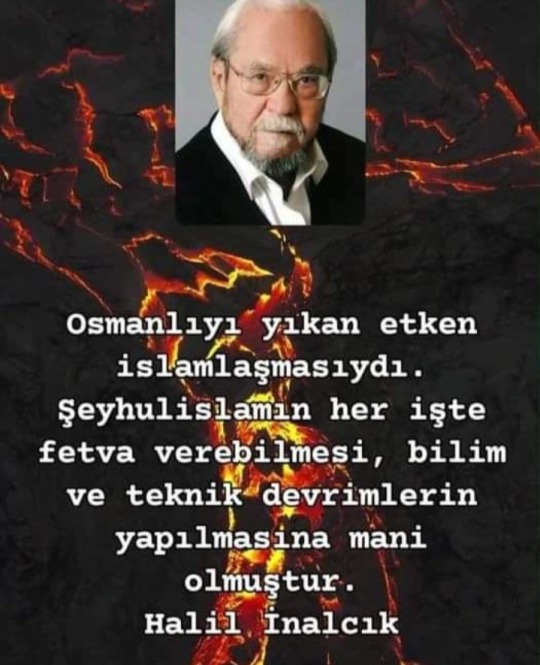
Dinin yıkamayacağı yıkmak istemeyeceği devlet yoktur. Dinin arkasında kim olduğunu ne amaçla dini maske yaptıklarını anlamayan toplumlar ne kendilerini koruyabilir ne de devletlerini.
Dini ilk kim icat etmiş ona bakın sonrasına bakmaya gerek olmadığını anlarsınız.
Sünni belayı başımıza onların atası Kanuni Sultan Süleyman açmadı mı?
Siz tarihi muhteşem yüzyıl vb rezillikten öğrenmeye devam edin.
Önder Karaçay
#önderkaraçay#mobbingbank#önder karaçay#mobbing bank#insan#atatürk#devrim#mahşer tufanı#zulüm#türk fırtınası#halil İnalcık#tarih
7 notes
·
View notes
Text
"Aşk mıdır ki, can-ü dil mülkünü yağma eyleyen;
Aşk mıdır sinem içre gelip de cân eyleyen"
~Kanuni Sultan Süleyman
*Sevgilinin gönül varlığını yağma eyleyen aşk mıdır?
Sonrasında cansız göğsüm içinde, gelişi ile bana tekrar can veren aşk mıdır?*
#keşfet#kesfet#edebi sözler#kitaptansözler#kitapsözleri#kitapokumak#kitaptavsiyesi#alıntı#kitapkurdu#kitapkokusu#divan edebiyatı
10 notes
·
View notes
Text
On this day (25 December, 1638 CE {17/18 Sha'ban, 1048 AH}), the Ottoman army under the command of Ottoman Sultan-Caliph Murad IV recaptured the city of Baghdad from the Safavid Empire.
The Ottomans had initially taken the city in 1534 CE during the reign of Ottoman Sultan-Caliph Suleyman Kanuni. Baghdad remained a part of Ottoman domains for a period of 90 years, until it was retaken by the Safavids during the reign of Shah Abbas I.
The recapture of Baghdad by the Ottomans under Sultan-Caliph Murad IV was part of the larger Ottoman-Safavid War between 1623-1639 CE.
The city remained within the Ottoman domains (directly and nominally) until the British Empire's takeover of the city in 1917 CE during their attack on Ottoman territories in the 'Middle East' during World War 1.
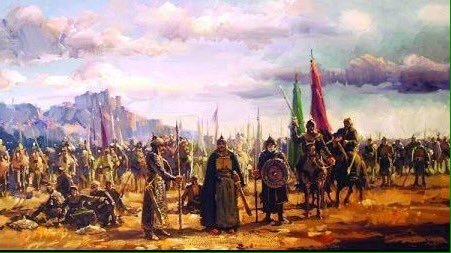
#history#islam#muslim#islamic history#history blog#ottoman#ottomans#ottoman history#osmanli#osmanlı#muslim history#baghdad#safavid#mesopotamia#kanuni sultan süleyman#sultan
4 notes
·
View notes
Text




17 Ağustos | Perşembe | 23
Süleymaniye Kanuni Sultan Süleyman'nın yanına Mimar Sinan'ı çağırarak öyle büyük bir cami istiyorum ki Ayasofya'yı yaptıran Justinuanus'un dediği "yendim seni Süleyman" cümlesine karşılık bu cami inşaatını başlatmıştı. O yüzden gerçekten ihtişamlı mı diye merak ediyordum. Buradaki Süleyman peygamberimiz için ve Kudüs içindeki Mescid-i Aksa için denilmişti. Aslında Kanuni'nin amacı intikam almaktı. Camisinde en çok merak ettiğim Mimar Sinan'ın kalfalık dediği aslında ince sanata bakınca ustalık denilebilecek eserinin bazı ince ayrıntıları vardı. Örümcek ağı tutmasın diyerek özel olarak getittirilen deve kuşu yumurtası hâlâ ışıkların orada asılıydı. O dönemde yüksek bir yapı olan caminin örümcek ağı tutması imkansız ama bunu geliştirmişti. Caminin kolonları tani o kocaman mermerler bildiğiniz tüm şekilde getittirilmişti. Caminin aslında en önemli meselesinden biri de mikrofon o dönemde olmadığı için caminin akustik seviyesi yani en arkadaki de imamı duysun dediği şeyi kubbelerin iç kısımları ve alt kısımlarına oluklu taş yaparak bunu sağlamıştı. Camiye akşam ezanı girebildim. Namaz kıldım elhamdülillah ama hayran hayran baktım okuduğum şeylerin bizzat müşahede edince o caminin büyüklüğünü görünce gözlerimi alamadım. Birde o dönemde kandil yandığı için cami is olmasın amaçlı dikdörtgen şeklinde oyuklara is toplanıyordu. Bu isler belli bir zaman sonra toplanıp Arabistana giden devenin üstüne asılıyor. Deve sallandıkça hem is kuvvetleşiyor hem de kutsallığı artıp o isi dini yazmalarda kullanıyorlardı. Muazzam bir incelik ile yapmış camiyi. Bir ara gerçekten uykum geldi biraz bir köşede uyumak istedim. Birde o dönemde bu bir külliye şeklinde olduğu için hamamdan gelen su caminin alt tarafına akıtılıp orada alttan ısıtma elde ediliyordu. Yazın ise o kanalın önü kapatılıyordu. Cami o kadar güzeldi ki bayıldım ya bayıldım mest oldum.
33 notes
·
View notes